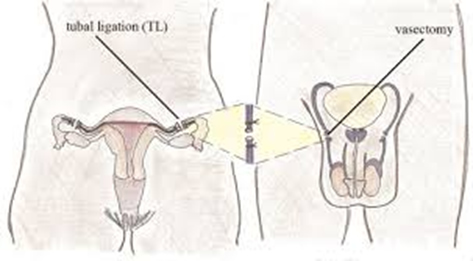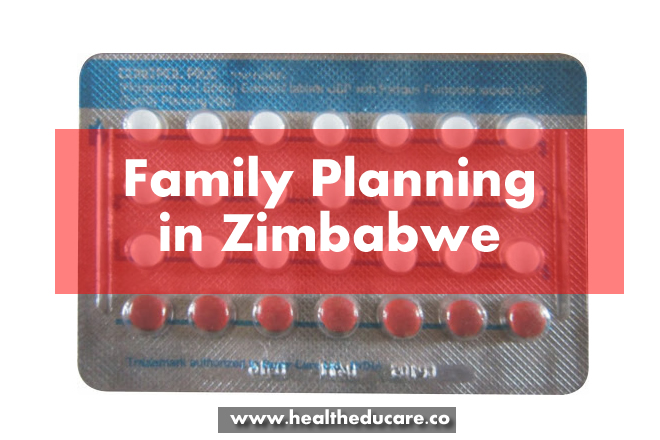Family planning services are educational, comprehensive medical or social activities which enable individuals, including minors, to determine freely the number and spacing of their children and to select the means by which this may be achieved.
IMPORTANCE OF FAMILY PLANNING
Family planning provides many benefits to the mother, children, father, and the family.
Mother
Enables her to regain her health after delivery.
Gives enough time and opportunity to love and provide attention to her husband and children.
Gives more time for her family and own personal advancement.
When suffering from an illness, gives enough time for treatment and recovery.
Children
Healthy mothers produce healthy children.
Will get all the attention, security, love, and care they deserve.
Father
Lightens the burden and responsibility in supporting his family.
Enables him to give his children their basic needs (food, shelter, education, and better future).
Gives him time for his family and own personal advancement.
When suffering from an illness, gives enough time for treatment and recovery.
WHAT ARE METHODS OF FAMILY PLANNING
There are different type of family planning methods which are listed below:
Hormonal contraception
 Hormonal contraceptives contain estrogen and progesterone, or progesterone only. They prevent pregnancy by blocking the release of eggs from the ovaries, thinning the lining of the uterus, or thickening the mucus in the cervix to help keep sperm from reaching the egg. Examples are the Pill (POP/COC) and injections (Depo Provera injection)
Hormonal contraceptives contain estrogen and progesterone, or progesterone only. They prevent pregnancy by blocking the release of eggs from the ovaries, thinning the lining of the uterus, or thickening the mucus in the cervix to help keep sperm from reaching the egg. Examples are the Pill (POP/COC) and injections (Depo Provera injection)
Efficacy:
Side effects
- intermenstrual spotting.
- nausea.
- breast tenderness.
- headaches and migraine.
- weight gain.
- mood changes.
- missed periods.
- decreased libido.
Long-acting reversible contraception
 Long-acting reversible contraceptives (LARC) are methods of birth control that provide effective contraception for an extended period without requiring user action. They include injections, intrauterine devices (IUDs) and subdermal contraceptive implants.
Long-acting reversible contraceptives (LARC) are methods of birth control that provide effective contraception for an extended period without requiring user action. They include injections, intrauterine devices (IUDs) and subdermal contraceptive implants.
Side Effects
Irregular bleeding
Spotting
Complete cessation of menstrual flow (amenorrhea)
Emotional lability
Weight gain
Headache
Acne
Small change in mood and libido
Barrier methods
 Barrier methods include the diaphragm, cervical cap, male condom, and female condom and spermicidal foam, sponges, and film. Unlike other methods of birth control, barrier methods are used only when you have sexual intercourse. Be sure to read the instructions before using a barrier method
Barrier methods include the diaphragm, cervical cap, male condom, and female condom and spermicidal foam, sponges, and film. Unlike other methods of birth control, barrier methods are used only when you have sexual intercourse. Be sure to read the instructions before using a barrier method
Side Effects
An increased risk for developing urinary tract infections (UTIs) if using a diaphragm and spermicide.
Leaving a diaphragm or cervical cap in for longer than 24 hours increases your risk for toxic shock syndrome.
Permanent contraception
 Permanent contraception is methods of sterilisation that prevent pregnancy permanently. The procedure for men is a vasectomy and for women, it is tubal ligation
Permanent contraception is methods of sterilisation that prevent pregnancy permanently. The procedure for men is a vasectomy and for women, it is tubal ligation
Side Effects
Side effects during or immediately following the procedure may include mild-to-moderate cramping, nausea, vomiting, dizziness, light-headedness, bleeding and/or spotting. The procedure cannot be reversed
Emergency contraception
 Emergency contraception refers to methods of contraception that can be used to prevent pregnancy after sexual intercourse. These are recommended for use within 5 days but are more effective the sooner they are used after the act of intercourse for example morning after.
Emergency contraception refers to methods of contraception that can be used to prevent pregnancy after sexual intercourse. These are recommended for use within 5 days but are more effective the sooner they are used after the act of intercourse for example morning after.
 Fertility awareness is the method of only having sex on the non-fertile days of your menstrual cycle. Fertility awareness refers to a set of practices used to determine the fertile and infertile phases of a woman’s menstrual cycle. Fertility awareness methods may be used to avoid pregnancy, to achieve pregnancy, or as a way to monitor gynaecological health.
Fertility awareness is the method of only having sex on the non-fertile days of your menstrual cycle. Fertility awareness refers to a set of practices used to determine the fertile and infertile phases of a woman’s menstrual cycle. Fertility awareness methods may be used to avoid pregnancy, to achieve pregnancy, or as a way to monitor gynaecological health.
WHICH ARE BEST METHODS OF FAMILY PLANNING IN ZIMBABWE
All methods of family planning mentioned above work perfectly for women in Zimbabwe, the difference is only on costs.
Contraceptive pills (POP, COC) are available at local clinics all over the country and usually for free, if they are being sold the prices are very low and affordable to everyone.
Injections (Depo Provera) they are also available at local clinics including family planning clinics. They are not for free but not very expensive.
Implants/Norplants (Jadel) they are provided by trained family planning personnel and can not be found in all local clinics but only in designated family planning clinics. They require a certain fee which not everyone can afford.
Condoms are always available and for free, they can be found in all public toilets, institutions, clinics. For variety and flavoured condoms, they come with a fee and can be found in shops and supermarkets.
Permanent methods (tubal ligation) are only done by medical personnel and are expensive.
UNWANTED PREGNANCIES
Any pregnancy which is not planned is an unwanted pregnancy. Unwanted pregnancy occurs when one has unprotected sexual intercourse whilst she is not on any family planning method and failed to get emergency contraception with 78hours after the intercourse.
About 10% of women on family planning method result in unwanted pregnancy therefore family planning methods are not 100% effective.
WHAT TO DO WITH UNWANTED PREGNANCY IN ZIMBABWE
For all unwanted pregnancy in Zimbabwe, visit Population Service offices which are country wide for help.
Attempting to abort at home may be fatal.
Exceptional cases such as pregnancy secondary to sexual abuse can be handled at local clinic/doctors, provided should be a police report.


